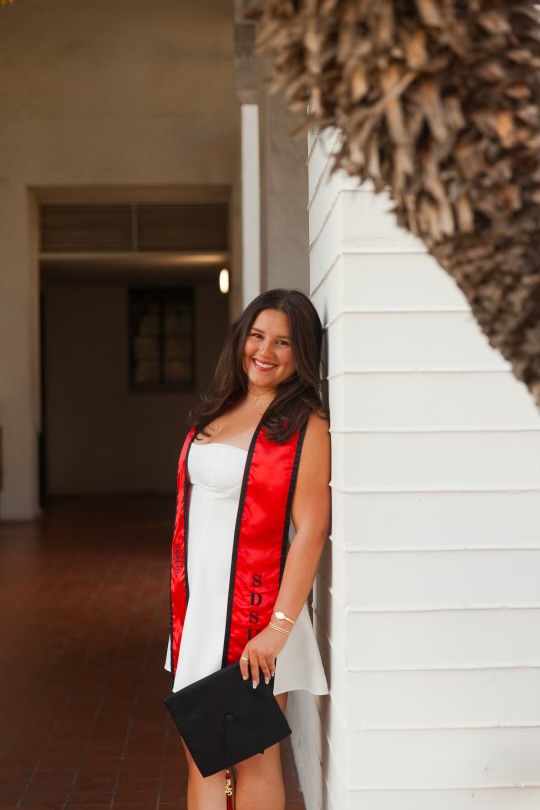Finishing college is a milestone in our academic journeys. Many of us have been going to school since kindergarten without any breaks. Graduating means transitioning away from an atmosphere of consistent learning, which may require some readjustment.
Halfway through my college years, I noticed how different my friends and family’s world views were compared to my own and others who pursued a college education. When I first noticed this, it felt like culture shock. The people who I thought I agreed with felt less familiar. Culture shock is quite common for students readjusting to a new and even familiar setting.
In “Intercultural Communication in Contexts,” by Judith N. Martin and Thomas K. Nakayama, there is a chapter about voluntary travelers known as sojourners. They are defined as people who move “into new cultural contexts for a limited period of time and for a specific purpose, such as for study or business.” Students who are sojourners experience an adaptation process referred to by the authors as the U-curve theory.
The idea is that travelers go through predictable stages while adapting to new environments such as excitement, anticipation, shock, disorientation and adjustment. When sojourner students return to their homes, they experience another U-curve. The combination of the U-curves shape what the book refers to as a “W-curve” in which culture shock like the one I referred to presents itself again.
We’ve all had that moment of shock where we hear a family member, friend or stranger say something problematic that we’ve learned to question and refute in academia. The type of culture shock I and others might feel may be because our educational environment has, for the most part, tried to foster and submerge us in an unproblematic space. Not everyone else has had this experience.
We should recognize our education is a privilege and that social norms regularly change even within education itself. When we interact with people who don’t have the same experiences or educational background, it can sometimes lead to uncomfortable conversations and arguments. The process may feel frustrating, but I believe these talks are worth having respectfully, and even strategically.
Last year, Vox published an article on techniques to help improve arguments. One of the strategies is to actively listen to what a person is saying. It is essential not to break your silence with impulse responses aimed at immediately discrediting the person speaking. When we do, we miss the opportunity for others to open up about their perceptions. Without that background information, we can’t learn why the person thinks the way they do, which further depletes the chances of explaining your issue in a way that translates to their views.
Listening, rather than quickly dismissing something with an “-ist” suffix or flexing our accumulated knowledge, can produce better results in developing understanding. We should also acknowledge there will always be people who have concrete beliefs that may never change. The choice to engage or not is yours to make.
Before you participate, you might assess if you’re in a position to have these conversations without being reprimanded and understand that these conversations can potentially create a rift between a family member, friend or coworker who doesn’t agree with you at the end of the conversation. If you do choose to engage, it should be to produce empathy and an understanding of a person’s background that should be mutual between any participants.
There are times where people won’t want to listen and that’s also their choice to make. But you also have the choice of how much you’ll continue to engage with a person who refuses to listen to an issue that is fundamental to who you are. The reality is that we need to have these skills now more than ever, as graduates like us integrate into the workforce and postgraduate life.
The New York Times wrote an article in which economists discussed the future of graduating college seniors amid the COVID-19 fallout. It discussed the similarities between the class of 2020 and the class of 2009, who also faced a recession upon graduation. Economists who study graduate classes during a recession use the term “scarring” to explain some of the economic impacts those students face going into the workforce. Scarring means these graduates face 10 to 15 years of higher unemployment and lower salaries.
These conditions also mean they will be working with a wide variety of people, some of whom may not have a college education and are at different points in their lives. How we interact with people who are not of similar educational backgrounds can help restore faith in institutions like education that are under-appreciated by polarization.
Skepticism toward institutions is not going away. This pandemic has shown us the dangers of failing to educate our citizens on the basics of science. Instead, groups choose to listen to alternatives that can be dangerous. Whether it is an individual drinking a disinfectant over the warning label or groups of people advocating leisure activities over risks of contamination, all of these people with these mentalities — whether we like them or not — need to be reached for society to function cohesively.
It might be too late to restore faith in some, but we are actively shaping the future with the present. We can start small, between person to person, and strive to make a difference individually.
Education’s purpose isn’t just to better ourselves but to better each other and the world around us. All of us may not be entering our field of study right after college to make the difference we thought we would, but we can still make a difference in the smallest of ways.
We owe it to each other.
Charlie Vargas is a senior studying journalism. Follow him on Twitter @CharlieVargas19.






